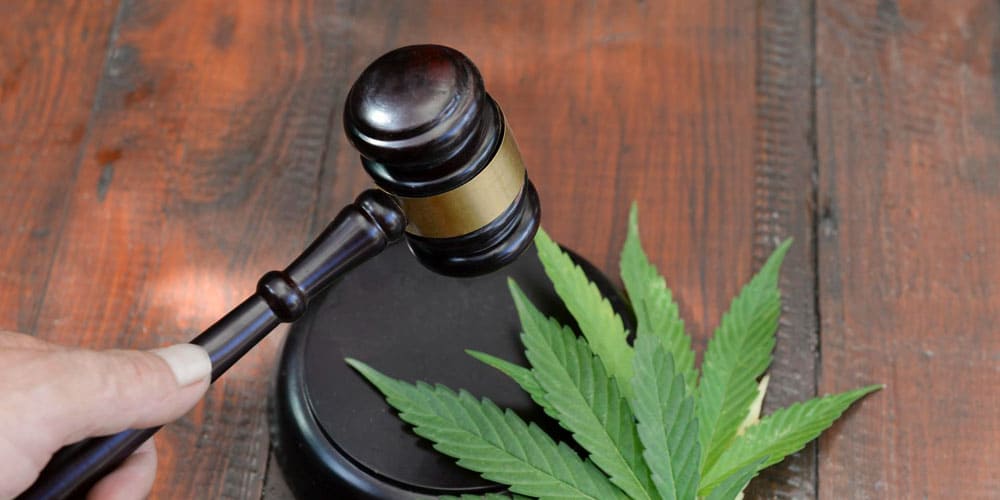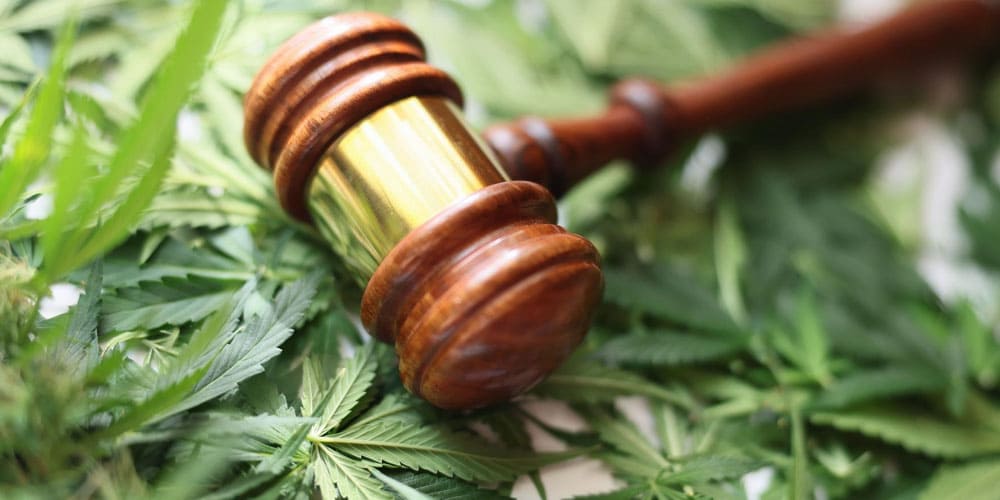
Weed Education
Legalization and Decriminalization: Understanding the Distinction

Legalization and decriminalization are two key terms that frequently surface in the increasingly complex discourse around substance control, particularly concerning drugs. Although often used interchangeably, these terms signify distinctly different approaches to regulating substances. This article explores the nuances and distinctions between legalization and decriminalization, highlighting their respective implications, challenges, and how they reflect shifting perspectives in global drug policy.
- Marijuana, Cannabis and Weed: What is the Difference?
- 5 Surprising Facts About THC
- The Origins of 420: Tracing the Evolution of a Cannabis Celebration
Legalization

Legalization involves the removal of legal prohibitions against a substance or activity, usually leading to the creation of a regulated system for production, distribution, and use. In drug policy, the goal of legalization is to shift the market from an illicit to a legitimate one, under government oversight. This process is about more than just making a substance legal, it includes establishing frameworks for legal production and sale, ensuring product quality, and implementing usage regulations to safeguard public health and safety.
Proponents of legalization often argue that it can bring several benefits, including increased tax revenue, a reduction in crime associated with the illegal drug trade, and the establishment of quality and safety standards for the substance in question. For example, the legalization of cannabis in various U.S. states and Canada has led to the creation of regulated markets. These regulated markets aim to diminish the black market’s influence, provide consumer protection, and ensure product quality and safety, all while generating significant tax revenue.
However, the road to legalization comes with its set of challenges and concerns. One of the primary concerns is the potential increase in usage, particularly among young people, as legalization may inadvertently normalize the substance. The commercialization of drugs post-legalization also raises concerns about aggressive marketing tactics and the risk of commercial entities prioritizing profit over public health.
Furthermore, the transition from an illegal to a legal market involves complex processes, including establishing comprehensive regulatory frameworks and finding ways to integrate former illicit operators into the new legal market. These challenges require careful consideration and strategic planning to ensure that legalization achieves its intended benefits without adverse consequences.
Delve into the delightful taste of Cereal Milk Live Resin Bar Disposable. This hybrid strain offers a unique combination of relaxation and creativity, perfect for unwinding or sparking inspiration. Its ability to ease stress and anxiety makes it a top choice. Try Cereal Milk for a flavorful and fulfilling cannabis experience.
Decriminalization

Decriminalization involves reducing or eliminating criminal penalties associated with certain acts, usually changing from criminal to civil penalties or removing penalties altogether. Under this approach, the substance itself is not legalized, but the possession of small quantities is no longer treated as a criminal offense. Decriminalization aims to alleviate the social and legal consequences associated with minor drug offenses, such as criminal records or imprisonment, and focuses instead on fines or treatment options.
The primary objective of decriminalization is to minimize the harms inflicted by the criminal justice system, including incarceration and the resulting social and economic repercussions. This strategy is often viewed as a progressive step towards rectifying the disproportionate impact of drug laws on certain demographics, especially marginalized communities. It seeks to shift the focus from punishment to public health and harm reduction.
Decriminalization has been successful in some instances, notably in reducing the burden on judicial systems and enhancing public health outcomes. Portugal’s groundbreaking model, which decriminalized all drugs in 2001, is often highlighted as a notable example of this success. This policy shift has led to significant reductions in drug-related fatalities, HIV transmission rates, and drug-related incarcerations. However, one of the limitations of decriminalization is that it doesn’t address the supply side of the drug market.
Global Perspectives and Shifts

The international legal status of various substances is significantly influenced by global treaties, such as the United Nations Single Convention on Narcotic Drugs. These international agreements often establish the legal framework within which individual countries formulate their own drug policies. However, there has been a noticeable trend of countries diverging from these established frameworks in favor of exploring alternative drug policy approaches.
This shift is indicative of a growing recognition that traditional drug control strategies may not effectively address the complex issues associated with drug use and the drug trade. Public opinion is a critical driver in the shaping of drug policy at both national and international levels. The increasing societal acceptance of substances like cannabis, fueled by evolving social attitudes and the growing acknowledgment of their medical benefits, has significantly contributed to the momentum toward legalization and decriminalization.
In addition to public sentiment, political considerations, economic implications, and concerns about public health and the efficacy of criminal justice systems are also major factors influencing these policy decisions. As a result, we are witnessing a gradual, albeit uneven, shift towards more progressive drug policies in various parts of the world, reflecting a balance between public opinion, health considerations, and international legal obligations.
Experience the iconic OG KUSH — Sauce Cart. This hybrid carries a distinctive terpene profile, blending fuel, skunk, and spice aromas. Symbolizing authenticity or intensity, OG Kush presents a lemon-pine-fuel scent with high THC. Ideal for evening use, it’s perfect for melting away stress and bringing a balanced head and body effect.
The Road Ahead

The ongoing debate between legalization and decriminalization extends beyond the realm of drugs, it’s fundamentally about how societies address intricate issues related to public health, justice, and individual freedoms. Each strategy, legalization or decriminalization, provides a distinct framework for managing the multifaceted challenges posed by substance use and abuse. These approaches reflect varying philosophies and strategies in tackling drug-related issues, each with its unique implications for public health, social equity, and law enforcement.
As research in this field continues to advance and more empirical data emerges from regions that have implemented these policies, we can anticipate further adjustments and refinements to these strategies. The impacts of legalization and decriminalization on public health, crime rates, and social equity are subjects of ongoing analysis and debate. This evolving body of research will play a crucial role in informing future policy decisions and in assessing the effectiveness of these approaches in achieving their intended goals.
Finding an optimal balance in drug policy, one that effectively addresses public health concerns, social justice, and control of substance use, is a complex and sensitive endeavor. Legalization and decriminalization each represent different points on the spectrum of drug policy options, with their own advantages and limitations. Policymakers are tasked with carefully weighing these factors, taking into account the unique social, cultural, and legal contexts of their societies.
Indulge in the summery sweetness of Strawberry 10 original mini joints, each finely crafted at 0.5 grams. This celebrated sativa energizes and uplifts, characterized by its authentic strawberry flavor. Enjoy the burst of fresh berry aroma complemented by a hint of earthiness, perfect for a refreshing and vibrant experience.














